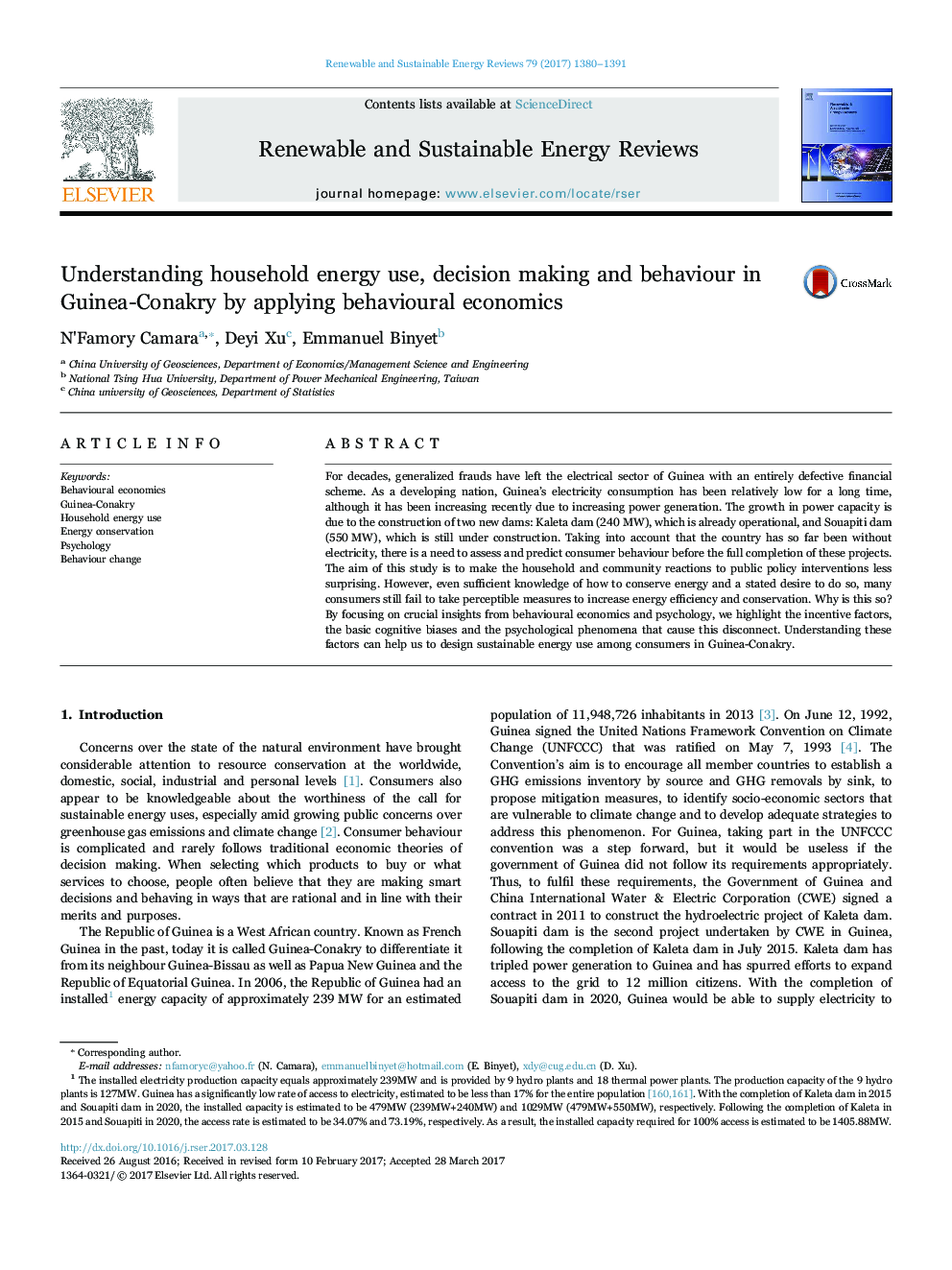| Article ID | Journal | Published Year | Pages | File Type |
|---|---|---|---|---|
| 5482644 | Renewable and Sustainable Energy Reviews | 2017 | 12 Pages |
Abstract
For decades, generalized frauds have left the electrical sector of Guinea with an entirely defective financial scheme. As a developing nation, Guinea's electricity consumption has been relatively low for a long time, although it has been increasing recently due to increasing power generation. The growth in power capacity is due to the construction of two new dams: Kaleta dam (240Â MW), which is already operational, and Souapiti dam (550Â MW), which is still under construction. Taking into account that the country has so far been without electricity, there is a need to assess and predict consumer behaviour before the full completion of these projects. The aim of this study is to make the household and community reactions to public policy interventions less surprising. However, even sufficient knowledge of how to conserve energy and a stated desire to do so, many consumers still fail to take perceptible measures to increase energy efficiency and conservation. Why is this so? By focusing on crucial insights from behavioural economics and psychology, we highlight the incentive factors, the basic cognitive biases and the psychological phenomena that cause this disconnect. Understanding these factors can help us to design sustainable energy use among consumers in Guinea-Conakry.
Related Topics
Physical Sciences and Engineering
Energy
Renewable Energy, Sustainability and the Environment
Authors
N'Famory Camara, Deyi Xu, Emmanuel Binyet,
